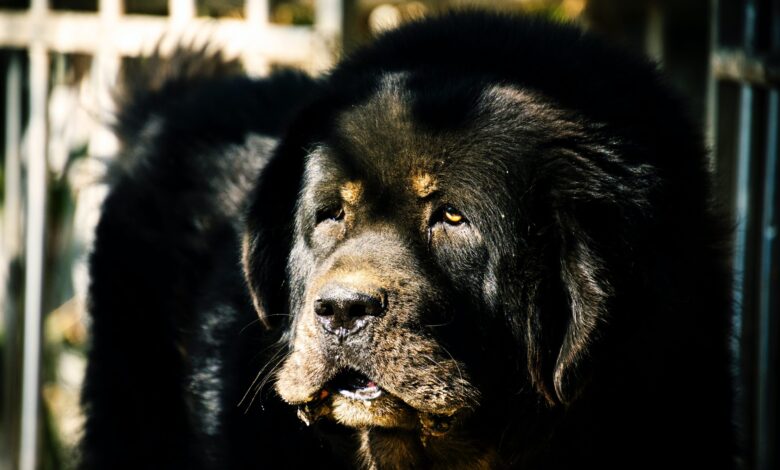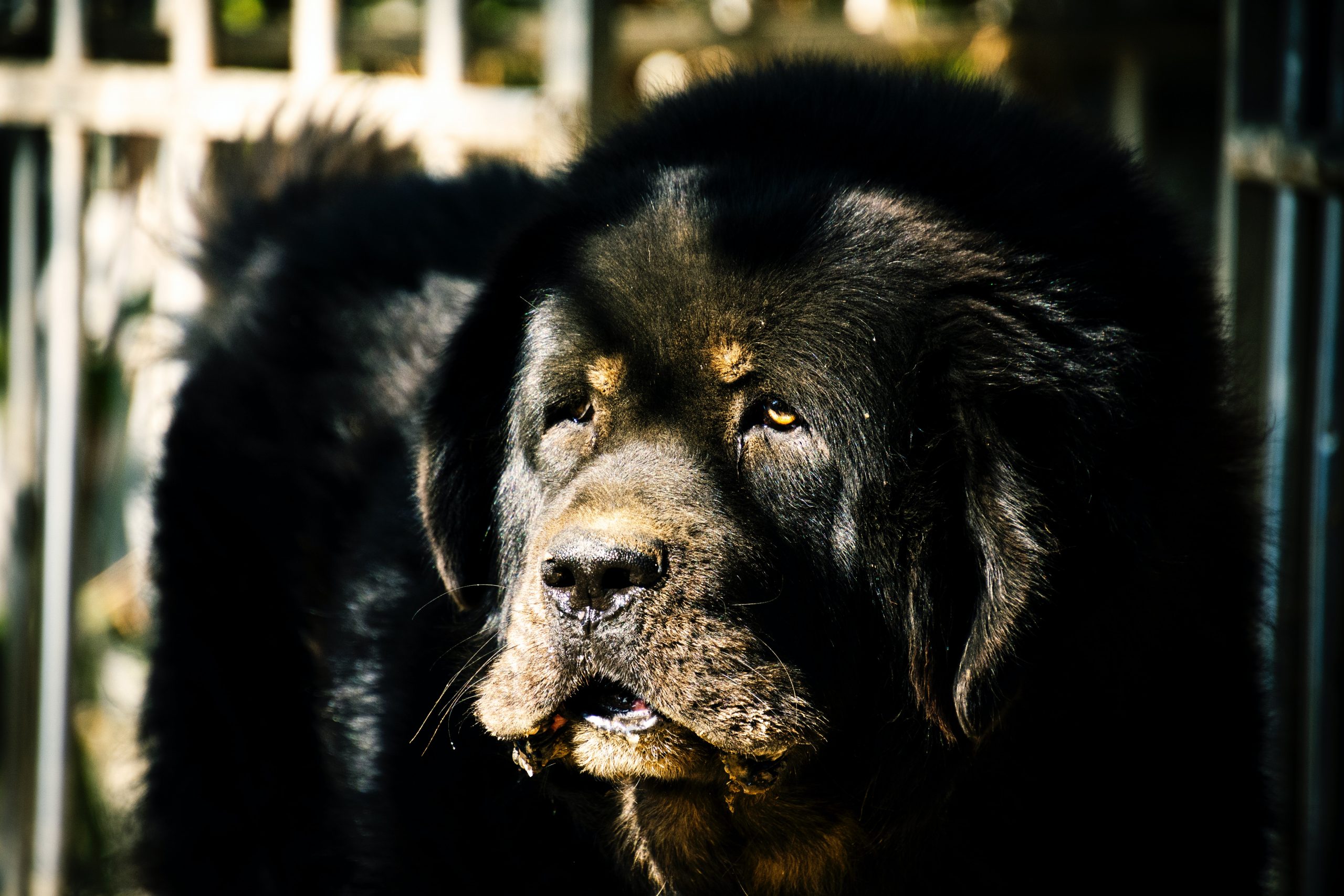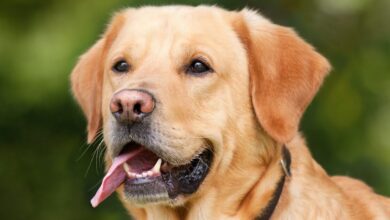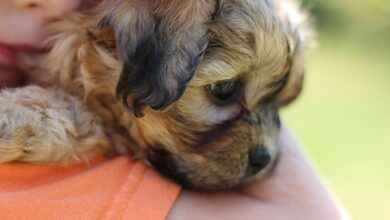Male & Female Newfoundland Weights & Heights by Age

Newfoundland puppies are a true embodiment of the term “gentle giants”. Even as pups, their size and stature stand out, hinting at the impressive adults they’ll become. As they journey from cuddly newborns to powerful, majestic adults, understanding their growth patterns is crucial for any potential or new owner. This article delves deep into the average weights and heights of Newfoundland puppies at various stages of their development. Charting their growth not only provides a fascinating insight into the world of this large breed but also equips owners with the knowledge to ensure their pup’s health and well-being.
 Male Newfoundland Weights & Heights by Age
Male Newfoundland Weights & Heights by Age
The following chart contains the average weights and heights of a male Newfoundland from newborn to 3 years of age. Please note these are only averages. Always consult with your veterinarian if you have any concerns about your Newfoundland’s growth.
| Age | Weight (lbs) | Weight (kg) | Height (inches) | Height (cm) |
|---|---|---|---|---|
| Newborn | 1.0 – 1.5 | 0.45 – 0.68 | 3 – 4 | 7.6 – 10.2 |
| 1 month | 10 – 15 | 4.5 – 6.8 | 8 – 10 | 20.3 – 25.4 |
| 2 months | 20 – 30 | 9.1 – 13.6 | 11 – 14 | 27.9 – 35.6 |
| 3 months | 40 – 50 | 18.1 – 22.7 | 15 – 18 | 38.1 – 45.7 |
| 4 months | 60 – 75 | 27.2 – 34 | 18 – 22 | 45.7 – 55.9 |
| 5 months | 80 – 100 | 36.3 – 45.4 | 22 – 26 | 55.9 – 66 |
| 6 months | 95 – 115 | 43.1 – 52.2 | 24 – 28 | 61 – 71.1 |
| 9 months | 110 – 135 | 49.9 – 61.2 | 26 – 30 | 66 – 76.2 |
| 12 months | 120 – 150 | 54.4 – 68 | 28 – 32 | 71.1 – 81.3 |
| 2 years old | 130 – 160 | 59 – 72.6 | 28 – 33 | 71.1 – 83.8 |
| 3 years old | 130 – 170 | 59 – 77.1 | 28 – 34 | 71.1 – 86.4 |
Female Newfoundland Weights & Heights by Age
The following chart contains the average weights and heights of a female in Newfoundland from newborn to 3 years of age. Please note these are only averages. Always consult with your veterinarian if you have any concerns about your Newfoundland’s growth.
| Age | Weight (lbs) | Weight (kg) | Height (inches) | Height (cm) |
|---|---|---|---|---|
| Newborn | 0.9 – 1.3 | 0.4 – 0.59 | 3 – 4 | 7.6 – 10.2 |
| 1 month | 8 – 12 | 3.6 – 5.4 | 7 – 9 | 17.8 – 22.9 |
| 2 months | 18 – 25 | 8.2 – 11.3 | 10 – 13 | 25.4 – 33 |
| 3 months | 35 – 45 | 15.9 – 20.4 | 13 – 17 | 33 – 43.2 |
| 4 months | 50 – 65 | 22.7 – 29.5 | 16 – 20 | 40.6 – 50.8 |
| 5 months | 65 – 85 | 29.5 – 38.6 | 19 – 23 | 48.3 – 58.4 |
| 6 months | 75 – 100 | 34 – 45.4 | 21 – 25 | 53.3 – 63.5 |
| 9 months | 95 – 120 | 43.1 – 54.4 | 23 – 28 | 58.4 – 71.1 |
| 12 months | 105 – 135 | 47.6 – 61.2 | 25 – 30 | 63.5 – 76.2 |
| 2 years old | 110 – 140 | 49.9 – 63.5 | 26 – 31 | 66 – 78.7 |
| 3 years old | 115 – 145 | 52.2 – 65.8 | 26 – 32 | 66 – 81.3 |
These tables are based on general guidelines and can vary greatly depending on individual dogs. Always consult with a veterinarian or professional breeder for more specific information about your pet’s growth and development.
FAQs about a Newfoundland Puppy’s Growth and Development
1. How large will my Newfoundland puppy grow?
Newfoundlands are a giant breed. Adult males can weigh between 130-150 pounds and females around 100-120 pounds. Height varies from 26 to 28 inches for females and 28 to 30 inches for males at the shoulders.
2. When do Newfoundlands stop growing?
While they might reach close to their full height by 18 months, Newfoundlands can continue filling out and gaining weight until they’re about 2-3 years old.
3. How much should my Newfoundland puppy eat?
The ideal amount varies with age and activity level. It’s crucial to feed high-quality puppy food and consult your vet for portion sizes, but generally, they need more food than smaller breeds due to their size.
4. Are there any growth-related health concerns in Newfoundlands?
Yes, due to their size, they can be prone to hip dysplasia and elbow dysplasia. It’s essential to monitor their exercise and diet and have regular vet check-ups.
5. When should I switch from puppy food to adult dog food?
For Newfoundlands, transitioning to adult dog food usually happens around 18 months to 2 years. Always consult with your vet to decide the best time and type of food.
6. How often should I exercise my Newfoundland puppy?
While they’re growing, it’s best to limit high-impact exercises. Short, controlled play sessions and walks are ideal to avoid stressing their developing joints.
7. Are Newfoundlands slow or fast growers?
Newfoundlands grow steadily but not exceptionally fast. Remember, they continue to fill out and mature even after reaching their full height.
8. Can Newfoundlands live comfortably in small spaces given their size?
While they are adaptable, Newfoundlands thrive best with some space to move. Proper exercise and mental stimulation can make living in smaller spaces more manageable.
9. How can I tell if my Newfoundland puppy is overweight?
Check the rib area; you should feel the ribs without pressing hard, but they shouldn’t be visible. If unsure, a vet can provide a proper assessment.
10. When will my Newfoundland puppy get its full coat?
While they will start to get their adult coat around 6-8 months, their full, dense coat may not come in until closer to 18 months.
11. Should I be concerned about my Newfoundland’s drooling?
Newfoundlands are known to drool, especially after eating or drinking. However, excessive drooling can also indicate dental or health issues, so monitor any sudden changes.
12. How can I keep my Newfoundland’s coat healthy during growth?
Regular brushing, a balanced diet, and occasional baths will help maintain a healthy, shiny coat.
13. When do Newfoundland puppies typically open their eyes and ears?
Puppies usually open their eyes and ears around the 10-14 day mark.
14. When should I start training my Newfoundland puppy?
Start basic obedience training as early as 8 weeks. Due to their size, early training is crucial to manage them when they’re bigger.
15. How can I ensure my Newfoundland’s bones grow strong?
A balanced diet with appropriate calcium levels, no overfeeding, and controlled exercise will support healthy bone growth.
16. How long do Newfoundland puppies teethe?
Like other breeds, they will teethe for the first 6-8 months. Providing appropriate chew toys can help soothe their gums.
17. Are Newfoundlands good with children and other pets during their growth phase?
Yes, Newfoundlands are known as gentle giants and are typically great with kids and other pets, but early socialization is essential.
18. Do Newfoundland puppies need specific grooming while growing?
While they don’t require intricate grooming, regular brushing helps in managing shedding and preventing matting.
19. What toys are best for a growing Newfoundland?
Durable chew toys, toys that promote mental stimulation, and gentle tug toys are great for Newfoundlands.
20. How can I socialize my Newfoundland puppy during its growth phase?
Expose them to various environments, people, and other animals in controlled settings. Puppy training classes and regular walks can also help in socializing.




